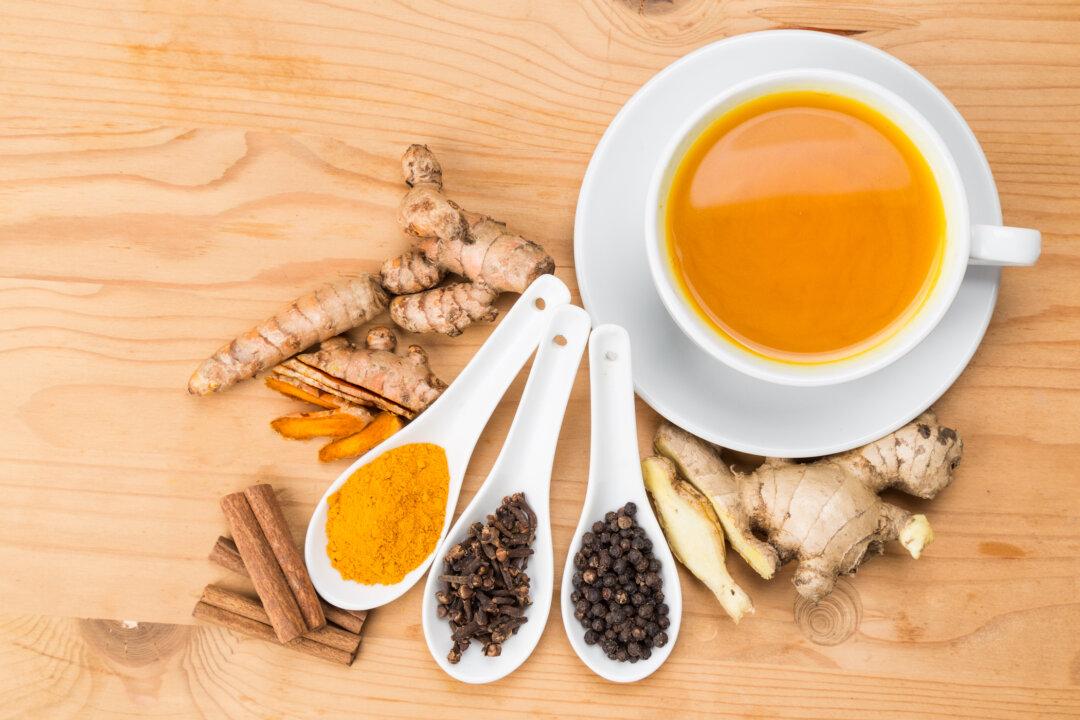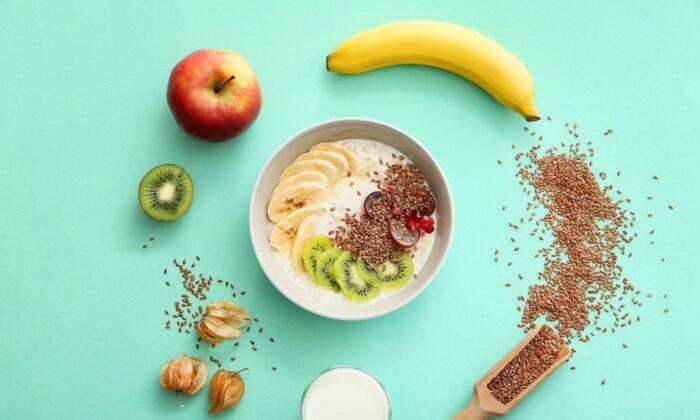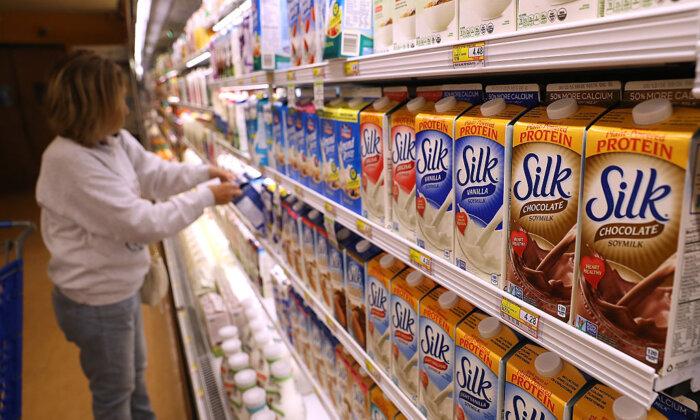What happened when researchers tried to tease out what’s in dairy that interferes with the health benefits of berries and tea?
A trio of Harvard studies that followed more than 100,000 women for more than a decade found that those consuming the most anthocyanins (the brightly colored pigments found in berries, like blueberries and strawberries) “had an 8 percent reduction in [the] risk of” developing high blood pressure. And the group consuming the most every day was only eating about six strawberries’ worth, or even just 11 blueberries—a tenth of a cup.
Cue a randomized, double-blind, placebo-controlled clinical trial; its title gives away the thrilling conclusion: “Daily Blueberry Consumption Improves Blood Pressure.” How can you do a double-blind trial, though, with a food? How can you convincingly create a fake placebo blueberry? They used whole blueberries—about a cup’s worth, but powdered them, versus a look-alike placebo powder, which had the same amount of sugar and calories as the real blueberries, but without the actual blueberries. Those in the placebo control group experienced no real change over the eight-week study. They started out with blood pressure of 138 over 79 and ended up 139 over 80, whereas the real blueberry group fell from 138 over 80 to 131 over 75—a significant drop. Now, 131 is still too high. You’d like to get it down to at least 120 or even 110, so blueberries alone may not cure you. However, the fact that you could get a clinically significant improvement in a killer disease by just adding a single thing to your diet is pretty impressive.
So is more better? What about twice the dose, more like two cups of fresh blueberries a day? You'd see the same kind of significant drop, but it didn’t seem to work any better. So one cup may do it. Even less may work; it’s never been tested.
Overall, there have been five interventional studies to date on the effects of blueberry supplementation on blood pressure. Put all the studies together and the results do not show “any clinical efficacy”—wait, what?! I just showed you two studies where there was this gorgeous effect. Have I been cherry-picking studies, or rather berry-picking studies? Well, if you look closely at the studies, “the blueberries in the two studies [I showed you that] detected a significant effect [were] prepared with water.” They just mixed the blueberry powder with water. However, the blueberries in the nonsignificant effect studies were prepared with yogurt and skim milk-based smoothies.
If you remember my blast-from-the-past video from like eight years ago, the absorption of berry nutrients can be blocked by dairy. Mix strawberries with water, and you get a nice peak in strawberry phytonutrients in your bloodstream within hours of consumption. But if you instead go for strawberries with cream—mixing the same amount of strawberries with milk instead—significantly less makes it into your system. “The inhibitory effects of milk [are thought to] be due to [the] interaction [between the berry pigments] and milk proteins.” Yeah, but does the same thing happen with blueberries? Let’s find out.
◇ Resources
- Cassidy A, Bertoia M, Chiuve S, Flint A, Forman J, Rimm EB. Habitual intake of anthocyanins and flavanones and risk of cardiovascular disease in men. Am J Clin Nutr. 2016;104(3):587-94.
- Cassidy A, O’reilly ÉJ, Kay C, et al. Habitual intake of flavonoid subclasses and incident hypertension in adults. Am J Clin Nutr. 2011;93(2):338-47.
- Johnson SA, Figueroa A, Navaei N, et al. Daily blueberry consumption improves blood pressure and arterial stiffness in postmenopausal women with pre- and stage 1-hypertension: a randomized, double-blind, placebo-controlled clinical trial. J Acad Nutr Diet. 2015;115(3):369-77.
- Basu A, Du M, Leyva MJ, et al. Blueberries decrease cardiovascular risk factors in obese men and women with metabolic syndrome. J Nutr. 2010;140(9):1582-7.
- Zhu Y, Sun J, Lu W, et al. Effects of blueberry supplementation on blood pressure: a systematic review and meta-analysis of randomized clinical trials. J Hum Hypertens. 2017;31(3):165-171.
- Xiao D, Sandhu A, Huang Y, Park E, Edirisinghe I, Burton-freeman BM. The effect of dietary factors on strawberry anthocyanins oral bioavailability. Food Funct. 2017;8(11):3970-3979.
- Serafini M, Testa MF, Villaño D, et al. Antioxidant activity of blueberry fruit is impaired by association with milk. Free Radic Biol Med. 2009;46(6):769-74.





